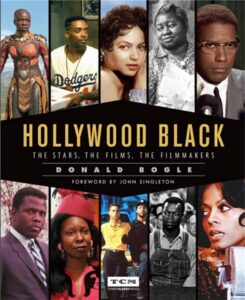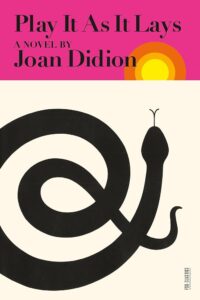There’s just something about the Golden Age of Hollywood. Though I know all that glitters covers doom and profound exploitation, my personal heart beats a little faster when confronted with a Busby Berkeley kick line or a painted backdrop. Give me Gene Kelly’s empty-headed grin in a downpour, or Dorothy Dandridge’s little shimmy at the cantina, and all turns technicolor. For an hour or two, anyway.
The podcaster and author Karina Longworth is one of our best scholars of this much-romanticized history. Over more than a dozen seasons of her sensational show, You Must Remember This, Longworth has examined a century’s worth of Hollywood’s greatest scandals and unsolved mysteries. She has a unique gift for packaging exhaustive research as compelling docudrama. YMRT‘s coverage of the Hollywood Ten, the ultra-racist origins of Disney, and the original gossip girls (just to name a few) is truly *chef’s kiss* for anyone who’s ever thrown a theme party inspired by this mood board.
Last week, Longworth teased a new season of YMRT by re-releasing the series’ first episode, on the miseducation of Kim Novak. Fans—or fine, this fan—got excited. Yet we remain on tenterhooks. To quell suspense in the meantime, I’ve assembled a starter’s syllabus for fellow fans of the pod/Silver-Screen-in-general. Here’s a few titles to get you started.

Donald Bogle, Hollywood Black: The Stars, The Films, The Filmmakers
An excellent introduction to the para-studio system sparked by auteur director, Oscar Micheaux, this readable textbook from film historian Donald Bogle covers a hundred years of Black Hollywood. We start in the silent years, detour into blaxploitation-era flicks of the 70s, and find ourselves (finally, gloriously) on Wakanda. Bogle lauds and lends context to the many stars who were compromised by a racist industry, while also praising independent Black cinema. Come for the scope, stay for the amazing photographs.

Gavin Lambert, The Goodby People
First published in 1971 but recently reissued under a chic new banner care of McNally Editions, Gavin Lambert’s The Goodby People is a swansong to old Hollywood, spinning around a mysterious narrator who works on “the very outskirts of the industry.” Over three dense chapters, the novel’s slippery hero encounters a runaway, a draft dodger, and a wealthy widow—though each point of contact seems to increase his loneliness. Melancholy and contemplative but perhaps not as pearl-clutching as the other novel on this list, this one’s a real diamond in the rough.

Kenneth Anger, Hollywood Babylon
This muckraker’s goldmine, dubbed “the urtext of salacious movieland gossip,” is somewhat ethically fraught. (Longworth dedicated an entire season of You Must Remember This to fact-checking its many libelous claims.) But I regret to report (for my soul’s sake) that compunction doesn’t diminish its horribly juicy entertainment value. Featuring coverage of cover-ups, blackmail campaigns, and the secret sex lives of troubled starlets, Hollywood Babylon will leave you itchy but endlessly intrigued. Did William Randolph Hearst really shove a nemesis off his yacht? Was Valentino murdered, was Charlie Chaplin framed? The late spitfire Kenneth Anger tells—and perhaps spins—all.

Eve Babitz, Eve’s Hollywood
Almost everything Eve Babitz put her pen to would fit nicely in a “hopped off the plane at LAX” welcome packet. But this memoir, with its poolside scenes of debauchery at the legendary Chateau Marmont, is perhaps the best for scratching that romantic itch. Featuring glittery prose anchored in a nepo-baby’s self-confidence, these missives from a 60s It Girl are a fine counterpoint to a whole spate of properties condemning the spiritual hollowness of mid-century California. Babitz isn’t turned off by the “emptiness.” She’s along for the ride.

You Know Who, Play It As It Lays
…and here be that counterpoint! Joan Didion’s cool second novel explores aimlessness and solitude, but delivers a scraped sensation. Over 200ish apple-crisp pages, we follow the actor Maria Wyeth through a kind of spiritual crisis. In a recent piece for The Los Angeles Times, David Ulin praised this novel’s fragmentation, and its negotiation of atomization via “narrative breakdown.” I’m rereading this classic today with an eye on Didion’s novel sensibility. Is there, perhaps, a little less glitter covering the doom in her fiction?
You tell me, Silver Screen sirens. I’ll leave you with a Fun Fact from Literati-wood: Didion and Babitz had a wild relationship.
